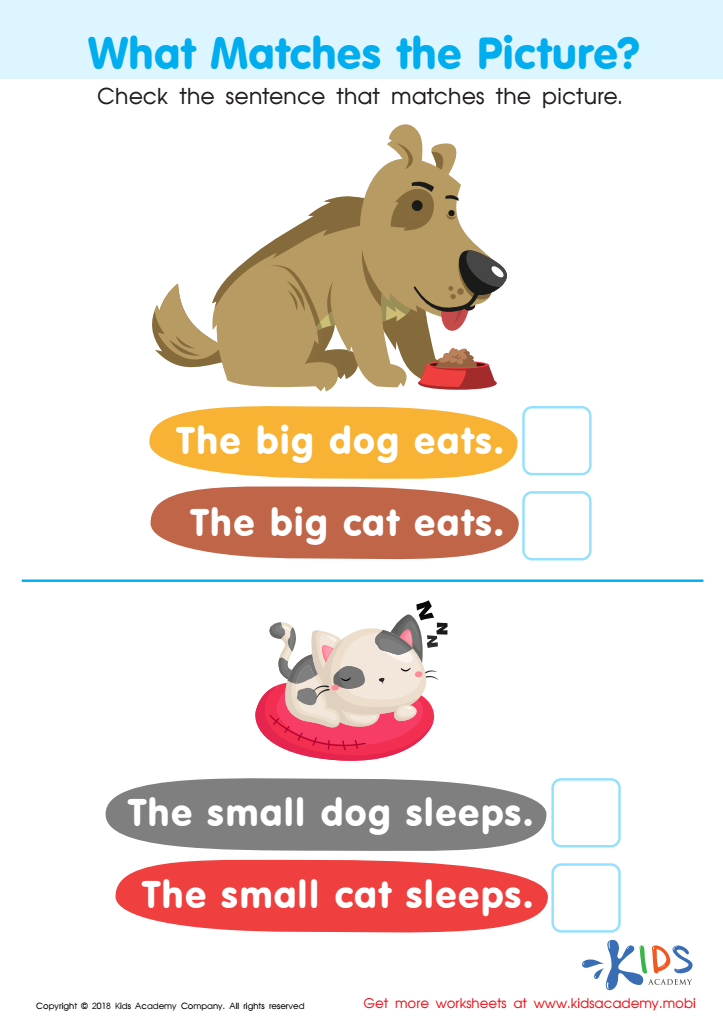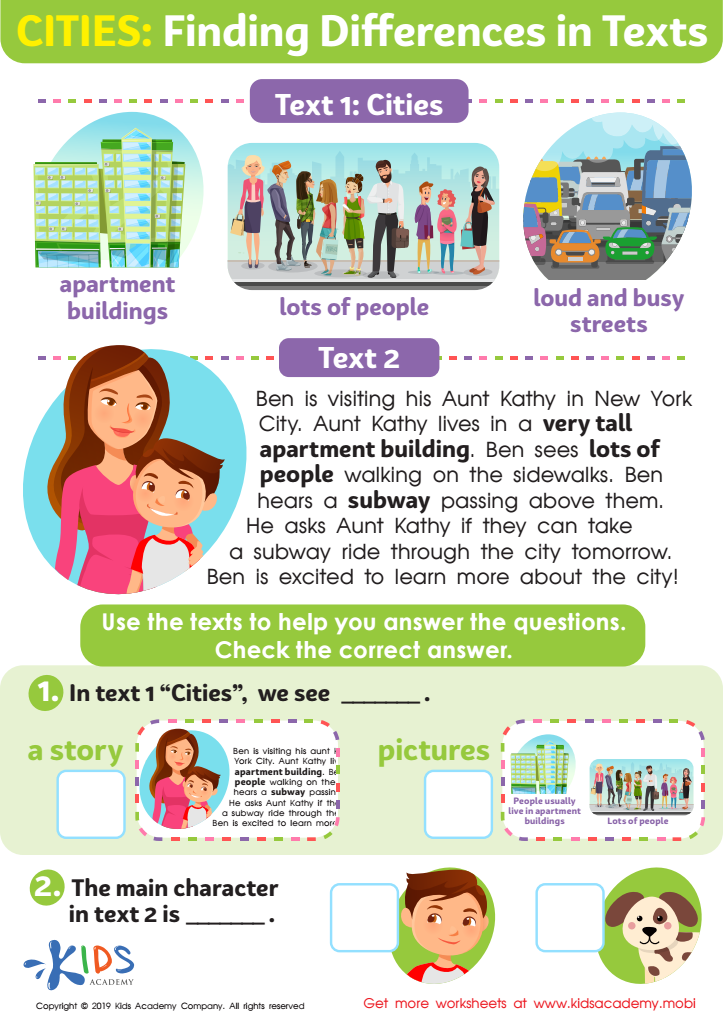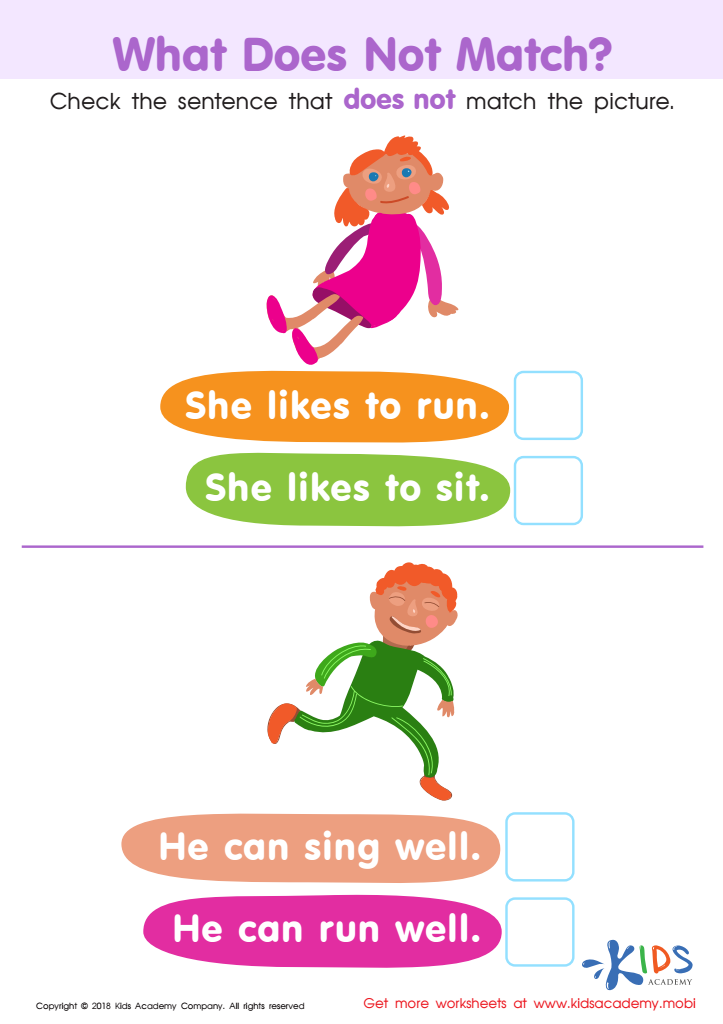Cognitive Development Reading Fiction Worksheets for Ages 6-7
4 filtered results
-
From - To
Enhance your child's cognitive development with our engaging Reading Fiction Worksheets designed specifically for ages 6-7. These thoughtfully crafted resources focus on enhancing critical thinking, comprehension, and imagination through interactive reading exercises. Our worksheets encourage young learners to explore stories, analyze characters, and understand plot dynamics, fostering deeper connections with the material. With fun illustrations and relatable themes, these activities make reading enjoyable while sharpening essential cognitive skills. Perfect for home or classroom use, these worksheets provide a solid foundation for lifelong learning. Boost your child's confidence and creativity as they venture into the exciting world of fiction with Kids Academy!


Rhymes in Poems Worksheet


What Matches the Picture? Worksheet


Cities: Finding Differences Worksheet


What Does Not Match? Worksheet
Cognitive development in children aged 6-7 is crucial, and reading fiction plays a key role in this process. During this stage, children start to fine-tune their cognitive skills, including critical thinking, comprehension, and empathy. Engaging with fictional stories helps enhance their imagination by allowing them to explore different worlds, characters, and situations, thereby fostering creativity.
When parents and teachers prioritize reading fiction, they introduce children to diverse perspectives and cultures, promoting social understanding and emotional intelligence. Fictional narratives often depict complex relationships and moral dilemmas, encouraging kids to engage in analytical thinking as they relate to characters’ choices and consequences. This critical engagement supports problem-solving skills, as children start to identify with or empathize with various characters.
Moreover, reading fiction contributes to vocabulary development and linguistic skills, as children encounter new words and phrases in context. Overall, making fiction a daily part of a child's life not only nurtures cognitive improvement but also fosters a lifelong love for reading, establishing foundational skills necessary in academic success and personal growth. Thus, both parents and teachers should prioritize incorporating engaging fictional texts into reading activities for children aged 6-7.
 Assign to My Students
Assign to My Students




















